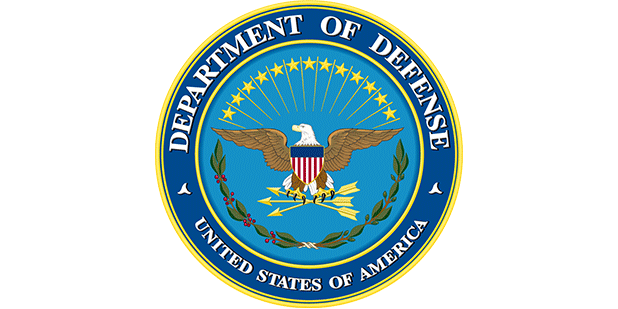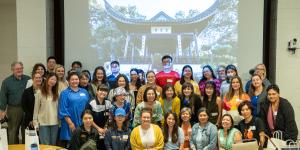On September 29, 2024, the USC U.S.-China Institute hosted a workshop at the Huntington’s Chinese garden, offering K-12 educators hands-on insights into using the garden as a teaching tool. With expert presentations, a guided tour, and new resources, the event explored how Chinese gardens' rich history and cultural significance can be integrated into classrooms. Interested in learning more? Click below for details on the workshop and upcoming programs for educators.
U.S. Department of Defense, Military Power of the People’s Republic of China, 2002

USCI Military Affairs video presentations and other resources are available here. Other U.S. Department of Defense reports on China's military:
2022 | 2021 | 2020 | 2019 | 2018 | 2017 | 2016 | 2015 |
2014 | 2013 | 2012 | 2011 | 2010 | 2009 | 2008 | 2007 |
2006 | 2005 | 2004 | 2003 | 2002
A link to the full pdf is below.
Introduction
The report addresses the current and probable future course of military-technological development on the People’s Liberation Army (PLA) and the tenets and probable development of Chinese grand strategy, security strategy, and military strategy, and of the military organizations and operational concepts, through the next 20 years. This report to Congress addresses specific questions in four sections on Chinese strategy, Chinese military forces, China’s arms sales from the former Soviet Union, and the security situation in the Taiwan Strait.
This report begins with a cautionary note that was first outlined in the Office of the Secretary of Defense, Net Assessment’s Report to Congress on Implementation of the Taiwan Relations Act in 2000. The Net Assessment report surveys how little is known about the most significant aspects of Chinese military power. Chinese secrecy is extensive. China reveals little in its Defense White Paper about the quantity or quality of its military forces. China’s defense spending may be some four times larger than its public announcement in March 2002 of a defense budget of about $20 billion. Since the 1980s, U.S. military exchange delegations to China have been shown only “showcase” units, never any advanced units or any operational training or realistic exercises.
Featured Articles
Happy Lunar New Year from the USC US-China Institute!
Events
Ying Zhu looks at new developments for Chinese and global streaming services.
David Zweig examines China's talent recruitment efforts, particularly towards those scientists and engineers who left China for further study. U.S. universities, labs and companies have long brought in talent from China. Are such people still welcome?






